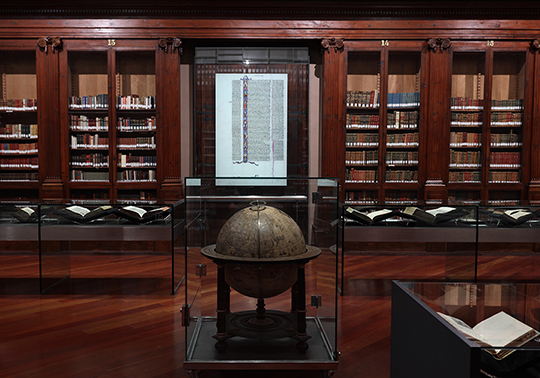
The Historical Library of the Universitat de València located in La Nau Cultural Centre opens its doors to the public on Sundays. Starting from 1 March and using the slogan ‘Els diumenges, a la Històrica!’ (“On Sundays, go to the Historical Library!”), the library management allows free access to the Duke of Calabria exhibition hall from 10 a.m. to 2 p.m.
These free visits will allow the public to contemplate a collection of facsimile reproduction of some significant works of the library bibliographical heritage. These works are unique, some of them are the only copies of their kind in the world.
The idea of this initiative is to bring the public closer to the library collections and educate them on the importance of preservation of this heritage which belongs to all Valencians not only for its value but also as a source of knowledge.
Some of the works that the visitors may see include the world map of Claudius Ptolemy representing his view of the world in the second century B.C.; manuscripts that the Duke of Calabria brought to Valencia in 1527; Obres o Trobes en Lahors de la Verge Maria, the first literary book published on the Iberian peninsula in 1474; and a fantastic incunabulum of Tirant lo Blanc published in Valencia by Nicolás Spíndeler in 1490.
The hall may be found on the first floor of the La Nau building. The furniture in the room is preserved from the 19th century and comprises cabinets with a wonderful collection of prints. A celestial and a terrestrial spheres are centred in the hall, both originating from the 19th century and representing the works of the Dutch cartographers Wilhelm and Joan Blaeu.
Finally, there is a small space with a temporary exhibition, displaying some examples of the rich and varied collection of the library. In March, two showcases involve a work selection about the origins and evolution of the Spanish Fallas holidays, which were declared Intangible Cultural Heritage of Humanity in 2016.











